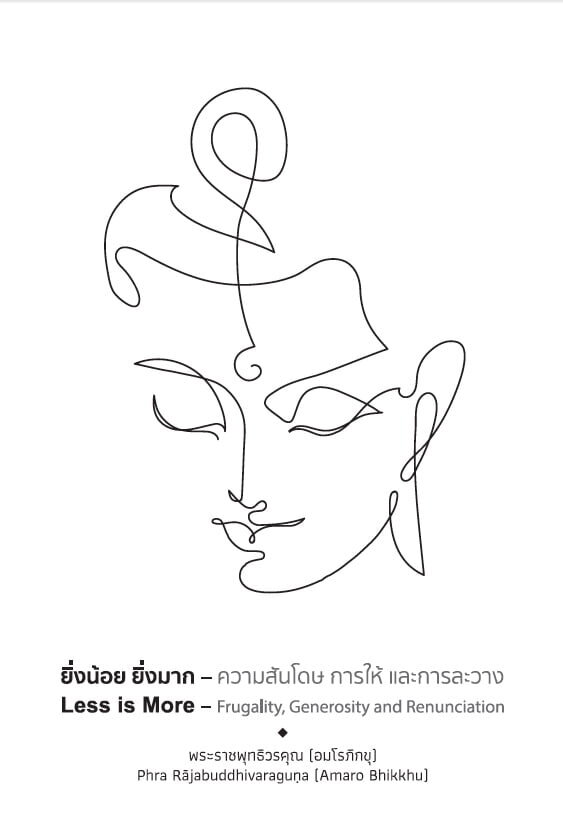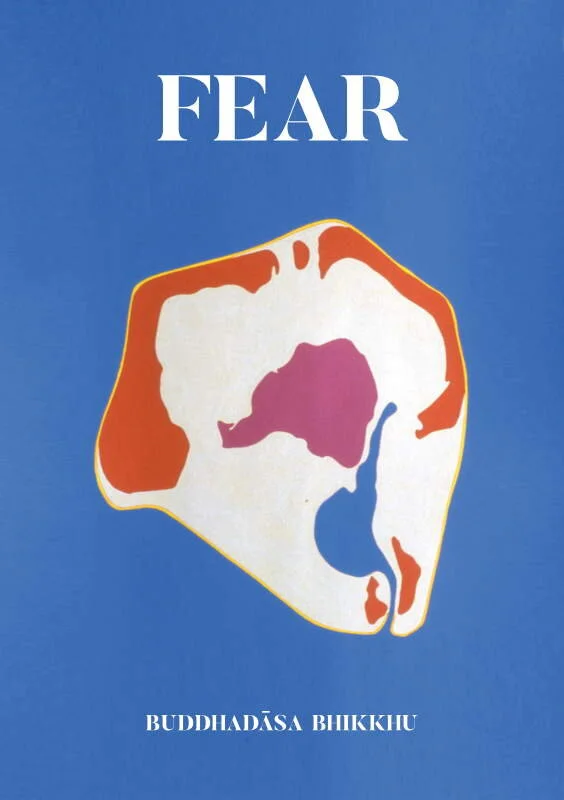
News
‘Awareness is your refuge: Awareness of the changingness of feelings, of attitudes, of moods, of material and emotional change. Stay with that, because it’s a refuge that is indestructible. It’s not something that changes. It’s a refuge you can trust in. This refuge is not something you create. It’s not a creation. It’s not an ideal. It’s practical and very simple but easily overlooked or not noticed. When you’re mindful, you’re beginning to notice: it’s like this.’
A new ebook by Amaro Bhikkhu. “…if we say that our usual philosophy in life is ‘more is better’, if ‘less is more’, then ‘less is better’ – if you follow the logic – which is a good way of summarizing this theme.”
El tema de hoy trata de permanecer en el momento presente y no dejar que el pasado o el futuro vengan a perturbarnos. Esto va en contra de cómo vive la gente corriente en el mundo, porque es entendido que aprendemos de experiencias pasadas y necesitamos el futuro como depositario de nuestras esperanzas y nuestros sueños.
BIA is open to the public six days a week, with social distancing practices observed. The Taste of Liberation program the first Sunday of every month is ongoing. The international program’s events and featured teachings, however, have been suspended until further notice.
Le thème que nous aborderons aujourd’hui concerne le fait de rester dans le moment présent et ne pas laisser le passé ou le futur venir nous déranger. Cela va à l’encontre de la façon dont on vit ordinairement dans le monde car il est entendu que l’on apprend de ses expériences passées et que l’on a besoin du futur pour y déposer espoirs et rêves.
Death is the great danger threatening ordinary people. Death, both physical and mental, forms the locus for fears of all kinds: fear of wild beasts, reptiles, ghosts, disease, of pain, of loss of one’s livelihood, of one’s reputation, of poverty and so on, including fear of death in its ordinary forms, or in some undignified, infamous form, like moral or spiritual death.
Good people, all those interested in the Dhamma, today’s lecture delivered during the Visākha Pūjā season is the fifth of the series devoted to those ‘important things that we tend to overlook.’ Today’s important thing that we tend to overlook takes the heading of ‘Loving Others,’ something we, all of us, are guilty of not doing.
Excerpts of letters written by Buddhadāsa Bhikkhu to his younger brother, Mr. Dhammadāsa Banij, in 1931, shortly before moving back to his southern home province of Chaiya and founding Suan Mokkh.
As was mentioned in its Thai edition of 1989, this inspiring work of Ajahn Buddhadāsa’s describes the formative years of his forest monastery, Suan Mokkh, in Chaiya, Surat Thani, Thailand, and the movement under his leadership; it is both linguistically and descriptively well-written in Thai and is accepted as an excellent Thai essay of the present time.
I’ve always regarded Ajahn Buddhadāsa, along with Luang Por Chah, as one of my primary teachers. I could relate to their way of teaching because it was so direct and simple. Ajahn Chah wasn’t intellectual at all – he hardly ever wrote anything – he always emphasized paṭipadā, practice.
In today's discussion of Ego and Mine, I'd like to discuss fear. Fear is a form of suffering that hugely disturbs human well-being. Some of that fear ought not to be so disruptive, but is.
On the occasion of Buddhadasa Bhikkhu’s 114th anniversary, BIA offers this special e-print of his major discourse on what remains a critical question for our time: “Now that everybody is more or less becoming a slave of materialism, what are we to do?”
“This Dhamma talk is for stimulating the intelligence of people who are ill. Please read carefully and consider thoroughly. Illness ought to be seen as natural occurrences for all physical saṅkhāras (bodies), whether humans or other animals…”
“I didn’t know that he was well known for his teachings on reincarnation and that they were quite different than most other Thai masters. He proceeded to give me a long talk about his reincarnation teachings.”
Prof. Geshe Georges Dreyfus speaks at BIA about how Ajahn Buddhadasa's teachings helped him to understand the Dhamma in ways that are appropriate for a modern scientifically educated person and yet also completely respectful …















